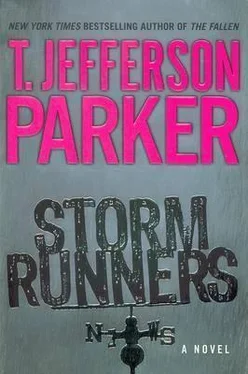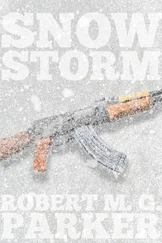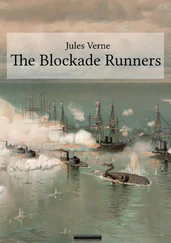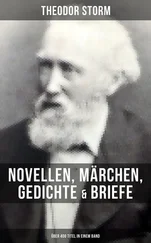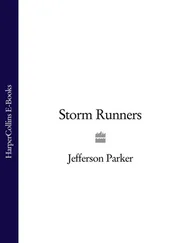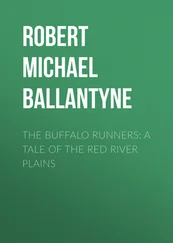Thirty-eight years old and counting, he thought.
You are what you are.
Hi, Billy. Hi, Hal. I love you. I will always love you.
“You look relaxed,” she said.
“I could sit here for a week. Like a half-crocked Zen Buddhist.”
“Let’s. I’m not afraid to be lazy.”
She signaled the waiter for another bottle.
That night they had dinner at the restaurant attached to the hotel. Frankie wore a dress that she bought after lunch, a backless black velvet number with a criminally modest neckline above which a string of pearls moved in the candlelight. Stromsoe wore the same new suit he’d worn to Dan Birch’s office three weeks ago to be interviewed for a job involving a weather lady, remarking to himself on the great good fortune it had brought him.
After dinner they walked the busy streets around the Monaco. Stromsoe, a product of ordered suburbs, and Frankie, who grew up in languid Fallbrook, liked the way that contradictory things in downtown San Francisco were packed in together — the theaters right there with the massage parlors, the antiquarian bookstore next to the adult arcade, the high-end restaurants and the hole-in-the-wall tobacco and newsstands. They watched as a tide of released theater patrons flooded the bums on the sidewalk, overcoats and scarves overwhelming the knit caps and cardboard signs. The war on poverty, Frankie remarked. The traffic lurched past them in a frantic parade and the woofers pounded from the youngsters’ cars and the shrieks of the bellmen’s whistles echoed up and down the streets. The city seemed hell-bent, self-important, and wonderful.
They stopped at the Redwood Room for dessert and liqueur. The menu said that the entire room — the bar, floor, walls, ceiling, and columns — had been constructed from the wood of a single redwood tree. Frankie was muttering something against loggers when she read that the tree was actually found in a river, toppled by a ferocious Northern California storm.
“See?” she said. “Behind every good thing there’s a river.”
“Next time we’ll go to a river you haven’t captured,” said Stromsoe.
“I’ve never seen the San Joaquin up by Mammoth.”
“Neither have I.”
“I love you, Stromsoe.”
“I love you, Frankie.”
“I can’t ever be Hallie and Billy.”
“I know.”
“But maybe... who knows?”
He brushed a dark curl from her forehead. “Yeah. Who really does know?”
The sky was bowed with clouds when their jet touched down in San Diego on Sunday, Halloween morning. Frankie had spent most of the hour flight craning her neck at the starboard window to watch the storm front lumbering in from the northwest.
“It’s big,” she said. “It’s awesome.”
Stromsoe saw the excitement in her face. She photographed the clouds with the same tiny camera she’d used to shoot John Cedros while he shot her.
When she was finished with the camera Stromsoe scrolled back through the images of Cedros. He was pleased that the young man had shown the courage to wear the wire on Choat. Stromsoe hadn’t thought that Choat would be foolish enough to burn down someone’s property, but he’d also seen the disregard for consequences in his eyes just before Choat had slugged him in the face. This kind of self-granted privilege was a quality shared by nearly every psychopath and violent felon that Stromsoe had ever met, and by several men he knew who were very powerful and had never done one hour in a jail.
They met Ted at the barn. He wore a twelve-gauge shotgun over his shoulder in a sling improvised from leather belts and plastic ties. At his side was a western holster with a prodigious revolver in it. The holster tip was tied to his thigh like a gunfighter’s.
“You kinda scare me,” said Frankie.
“I know what I’m doing.”
She hugged him, the shotgun protruding crosswise between them. “Ted, you’re a true sweetheart,” Frankie said.
“They can’t fool me twice.”
Stromsoe said nothing but in all his years of law enforcement he had never seen anything good happen to a civilian carrying two guns.
He heated cans of stew while Frankie and Ted — shotgun unslung and propped by the door — huddled over surface maps and the real-time weather-station feed coming in from the San Margarita Reserve. NOAA radio babbled on in a stream of static out of San Diego, the meteorologist calling Lindbergh Field Line bergh Field while the Weather Channel played silently from a TV atop one of the refrigerators in which Frankie stored her secret potions.
An hour later they set off in Ted’s pickup truck, Ace and Sadie whining with excitement and a sprinkle of rain hatching the scents of sagebrush and wild buckwheat from the hillsides around them. Stromsoe noted that they now carried twelve five-gallon canisters rather than the usual eight. Ted had installed a gun rack against the rear cab window which now cradled the shotgun and its cobbled strap. Frankie gripped Stromsoe’s knee with a strong hand.
“It’s going to take,” she said. “It’s going to take this time.”
“Did you tighten up the suspension ratios?” asked Ted.
“Yes,” said Frankie. “But that’s all I can say.”
“That’s all I need to know,” said Ted.
At tower one Stromsoe helped Ted get the three heavy canisters onto the platform so that Frankie could activate the solutions. The copper-chlorine smell was clear but not overly strong. This time, it was Stromsoe who climbed the towers and hauled up the containers. Ted wanted both feet on the ground, he said, and Stromsoe noted with respect that Ted never stopped looking around, scanning the bushes and the dirt roads and the hillsides for any sign of Mike Tavarez’s hired killers. Stromsoe’s .380 was on his waist, secured by the Clipdraw, exactly where it had been nearly every waking moment for the last three weeks.
Then Stromsoe climbed down and Frankie climbed up. He handed her the heavy red toolbox, which clunked to the platform with a rattle of steel.
“I think the world of you, you big lug,” said Frankie. “But you know the drill.”
Stromsoe walked nearly to the truck and turned his back while Frankie tended her formula. He heard the clicking sound of a lighter, then the soft ignition of propane. Ted stood guard on the road, the shotgun sling resting over his shoulder.
As before, Stromsoe heard the sound of liquid hitting liquid then the banging of a hard object side to side inside the canisters as she stirred the brew. The copper-chlorine smell weakened.
But unlike before, Stromsoe not quite accidentally wandered to a position that framed Frankie perfectly in the side mirror of Ted’s truck. The second time in a week, he thought, that a side mirror had come in more than handy.
So he watched her stir and add small amounts of something from a shiny chrome can that she kept in the red toolbox. She measured the liquid in a standard kitchen measuring cup, and made some kind of entry with a stylus on a small silver keypad. Then she stirred again. After working on a thick, black rubber glove, she then lowered a small object into the canister and brought it back out. The object looked like the chlorine tester that his neighbor used on his swimming pool back in Santa Ana when he was a kid. He watched Frankie add something from a dropper, then shake the tester, then bring it up to her face for a reading.
She poured more liquid from the chrome can into the measuring cup, poured a little bit back out, held the cup at eye level, then emptied it into the canister.
The blue light almost instantly appeared above the top of the big can. It cast a blue tint on her face as she put on the glove again and stirred. Wisps of pale blue gas began to rise and the altered smell, ethereal and indescribable, came to Stromsoe’s nose in a moment. He watched Frankie watch the smoke, the blue light playing off her throat, her head back and her face to the sky as if to measure its rate of climb.
Читать дальше
Конец ознакомительного отрывка
Купить книгу
